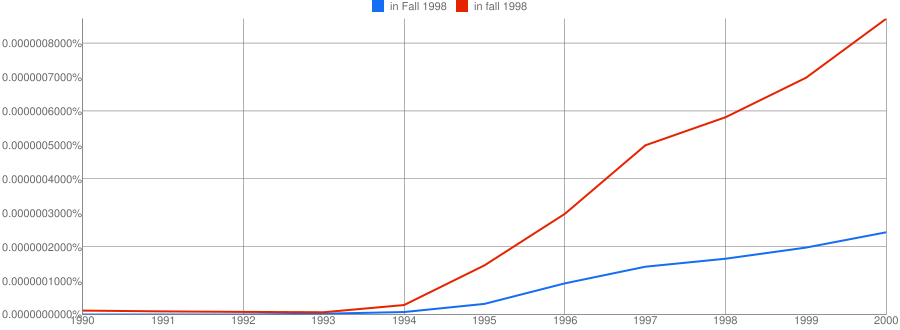Should fall be capitalised in the following? If yes, is it because Fall 2011 is a proper noun?
Where should an app be released in Fall 2011?
In a Wikipedia article, Avatar (2009 film), a particular summer is capitalised (my emphasis):
Work on the language for the film's extraterrestrial beings began in Summer 2005, and Cameron began developing the screenplay and fictional universe in early 2006.
(The related question Should the names of seasons be capitalized? is about the seasons themselves (as in I love the colors of the leaves in autumn.), not a particular season, like Fall 2011.)

